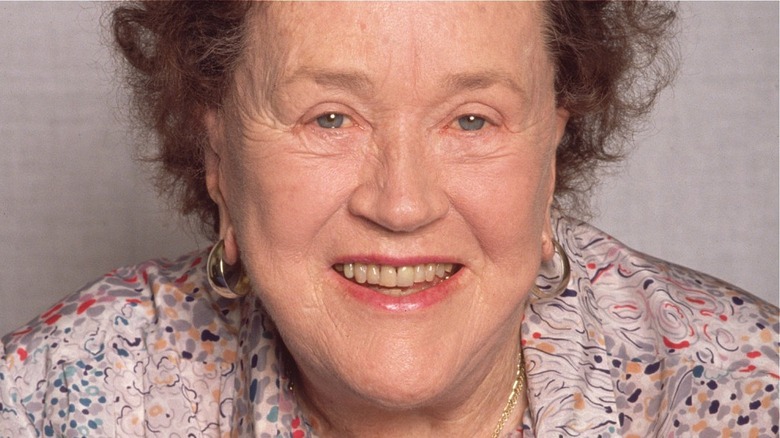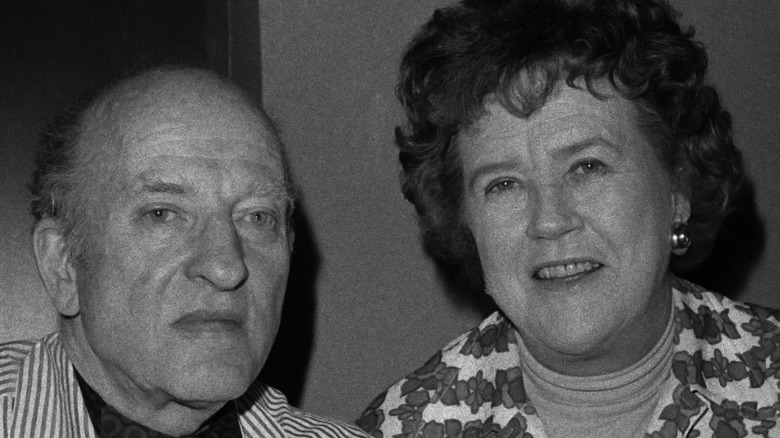Julia Child And Her Father Had This Big Disagreement Over Her Future
For many foodies, it would be a challenge to imagine a world without Julia Child. Fans of celebrity chefs — and even famous chefs themselves — credit the late Child for paving the way to success for other aspiring cooks, from Rachael Ray to Ina Garten. One of Child's main accomplishments was demystifying the once complicated art of French cooking for Americans, making home cooks believe that they could pull off Parisian-style meals at home, according to The New York Times. But Child's now-legendary path to adoration could have been very different, thanks to her father, John McWilliams.
In the just-released documentary, "Julia," we learn that McWilliams (who is painted by those who knew him as a strict, conservative businessman) settled his family in Pasadena, California. Child's friends and family detail that while Child certainly loved her father, they never appeared close. In fact, he was probably the main obstacle hindering her ability to reach her culinary potential. After studying at Smith College in Massachusetts, Child was not expected to take any steps beyond marrying someone from her same socioeconomic background and having children. And to that, Child said, "If I had to marry a conservative banker or lawyer, I would have played golf and tennis, and I would have been an alcoholic."
Child and her father did not see eye-to-eye on her marriage
Child did eventually get married — to Paul Child, whom she met while she was working in the Office of Strategic Services, the U.S. government organization that pre-dated the CIA. The pair met when they were both stationed in Sri Lanka and grew closer when they were assigned together in China. After the war, Child and Paul fell in love and got married, but it was not exactly with her father's approval.
In the "Julia" documentary, it is revealed that McWilliams had "dismissed" Julia's new husband not only because was he an artist, but also because he was politically liberal. Paul, meanwhile, didn't connect too well with McWilliams, whom he had viewed as a "conservative businessman." It probably didn't help when, as Child's niece Phila Cousins points out, Child became a Democrat after she married Paul. Moreover, The New Yorker reveals that it was Child's inheritance that supplemented Paul's income earned as a civil servant. While we know that Julia Child's marriage to PauI was the stuff of fairy tales, it is not certain whether the relationship between Child and her father remained contentious to the end.

